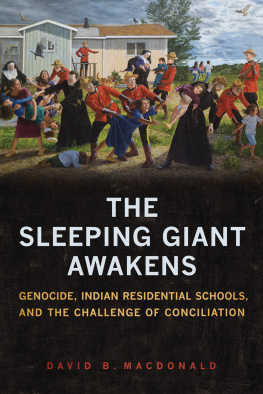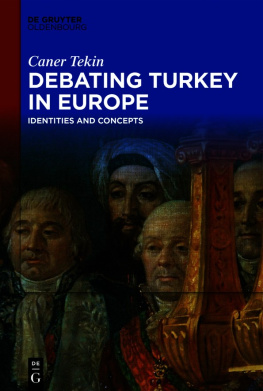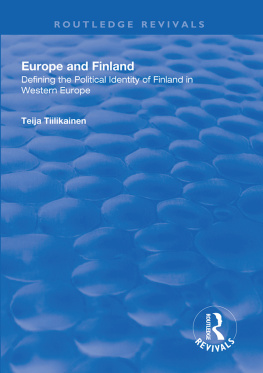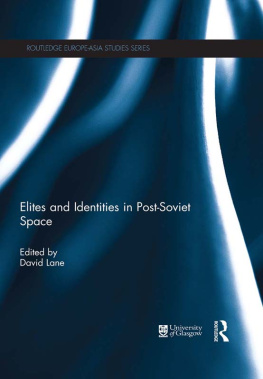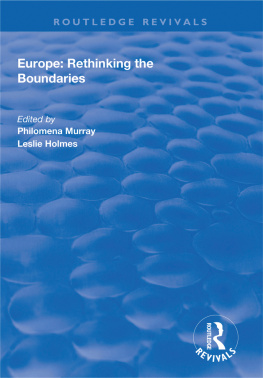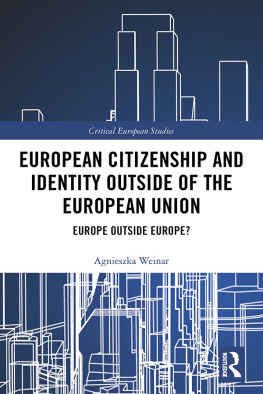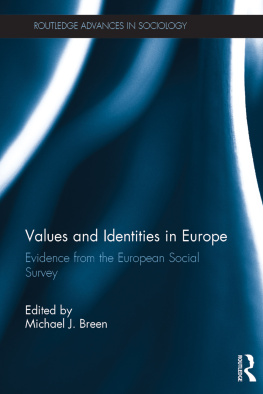Europe in Its Own Eyes, Europe in the Eyes of the Other
Cultural Studies Series
Cultural Studies is the multi- and inter-disciplinary study of culture, defined anthropologically as a way of life, performatively as symbolic practice, and ideologically as the collective product of varied media and cultural industries. Although Cultural Studies is a relative newcomer to the humanities and social sciences, in less than half a century it has taken interdisciplinary scholarship to a new level of sophistication, reinvigorating the liberal arts curriculum with new theories, topics, and forms of intellectual partnership.
Wilfrid Laurier University Press invites submissions of manuscripts concerned with critical discussions on power relations concerning gender, class, sexual preference, ethnicity, and other macro and micro sites of political struggle.
For more information, please contact:
Lisa Quinn
Acquisitions Editor
Wilfrid Laurier University Press
75 University Avenue West
Waterloo, ON N2L 3C5
Canada
Phone: 519-884-0710 ext. 2843
Fax: 519-725-1399
Email:
Europe in Its Own Eyes, Europe in the Eyes of the Other
David B. MacDonald and Mary-Michelle DeCoste, editors
Wilfrid Laurier University Press acknowledges the financial support of the Government of Canada through the Canada Book Fund for our publishing activities.
Library and Archives Canada Cataloguing in Publication
Europe in its own eyes, Europe in the eyes of the other /David B. MacDonald and Mary
Michelle DeCoste, editors.
(Cultural studies)
Includes bibliographical references and index.
Issued in print and electronic formats.
ISBN 978-1-55458-840-4 (bound).ISBN 978-1-55458-867-1 (epub).
ISBN 978-1-55458-866-4 (pdf)
1. Group identityEurope. 2. National characteristics, European. 3. Political
cultureEurope. 4. Collective memoryEurope. 5. EuropeCivilization20th
century. 6. EuropeCivilization21st century. I. MacDonald, David B., 1973, editor of
compilation II. DeCoste, Mary-Michelle, editor of compilation III. Series: Cultural studies
series (Waterloo, Ont.)
D1055.E97 2014 306.094 C2013-905940-7 C2013-905941-5
Cover design by Blakeley Words+Pictures. Front-cover image by AP Photo/Pier Paolo Cito. Text design by Sandra Friesen.
2014 Wilfrid Laurier University Press
Waterloo, Ontario, Canada
www.wlupress.wlu.ca
This book is printed on FSC recycled paper and is certified Ecologo. It is made from 100% post-consumer fibre, processed chlorine free, and manufactured using biogas energy.
Printed in Canada
Every reasonable effort has been made to acquire permission for copyright material used in this text, and to acknowledge all such indebtedness accurately. Any errors and omissions called to the publishers attention will be corrected in future printings.
No part of this publication may be reproduced, stored in a retrieval system, or transmitted, in any form or by any means, without the prior written consent of the publisher or a licence from the Canadian Copyright Licensing Agency (Access Copyright). For an Access Copyright licence, visit http://www.accesscopyright.ca or call toll free to 1-800-893-5777.
Contents
David B. MacDonald and Mary-Michelle DeCoste
Andrei S. Markovits
Sally D. Charnow
William E. Conklin
David B. MacDonald
Kimberly Earles
Dirk Nabers
The Accident Stephen Henighan
Catch-22 Spencer Morrison
Oana Fotache Dublaru
A Memoir of the Warsaw Uprising Jeannine M. Pitas
Fernando Clara
Underground Gordana Yovanovich
Exile Mary-Michelle DeCoste
Elena Benelli
Susan Ingram
Alla Myzelev
Introduction
Identity, Memory, and Contestation in Europe
David B. MacDonald and Mary-Michelle DeCoste
During the eight years of the George W. Bush administration, Europe seemed to represent a more positive, prosperous, stable, and culturally enlightened antipode to the United States. A large volume of books during this period extolled the virtues of Europe, which was seen as the next super-power, a model of what countries could do when they put narrow national self-interest aside and worked together, promoted ethical forms of foreign policy, and maintained a strong welfare state. Sadly, by the time Barack Obama became president, the myth of an economically prosperous, stable, and progressive Europe was been shattered by the Greek bailout, economic problems in Italy, Spain, Ireland, and other countries, and fractious debates about monetary union. The rise of ultranationalism of the Pim Fortuyn or Jorg Haider variety during the 1990s and after also seemed to indicate that the European experiment was not working perfectly, and that lingering racism and xenophobia continued, despite decades of new myth-making. German Chancellor Angela Merkels pronouncement in 2010 that multiculturalism had utterly failed in her country, followed by negative reactions toward the phenomenon in other core EU countries, underscored the reality that European identity remains unsettled and contested, especially in an era of high immigration, low birthrates, a failed EU constitution, and the steady erosion of the welfare state. All this has come alongside ballooning debt and uncertainty about the limits of the eastward expansion of the Union, particularly toward religiously dissimilar states like Turkey.
What it means to be European, however, has always been unsettled. What is Europe, and how can one define where it begins and ends? Our focus in this book is European identity, a crucial topic as Europe undergoes a plethora of challenges. But what precisely does Europe mean? As Jacobs and Maier have argued, positively, Europe can be defined as a jagged and ragged end of the Eurasian landmass. But there is no agreement at all where this part begins, and to call it a continent is certainly an abuse of language. To situate Europe geographically is therefore already problematic, but it is even more difficult to define Europe historically and culturally (1998, 13).
The focus on Europe as it is seen through its own eyes and through the eyes of the other (a label problematized by many of the chapters in this volume) in a variety of different kinds of texts helps us to understand the contested nature of European identities in the plural, as well as allowing us to engage with the shifting sands of identity contestation from inside and outside of Europe. The idea that there are many forms of identity competing with dominant homogenizing conceptualizations is at the root of this work. We agree with Thomas Risses view that it is wrong to see European identity as compared to national, regional, or local loyalties in a zero-sum fashion as either/or propositions. Individuals hold multiple identities and, thus, can identify with Florence, Tuscany, Italy, and Europe or with Munich, Bavaria, Germany, and Europe without having to face conflicts of loyalties. Which of these identities becomes salient or important in a given moment depends on the context in which people act (2011, 2).
The chapters presented here reflect the tensions and ambiguities about both what being European might imply as well as what not being European can mean. The book features sixteen chapters divided into four thematic sections, drawn from a selected group of Canadian, American, and European contributors. We as editors hope the thematic divisions will allow academic researchers and course instructors to easily find what will be of interest to them. Two key themes unite the chapters: first, the politics of identity construction involving self and other, and second, the politics of memory, that is, how history is understood and interpreted.
Next page

